Essential gear for the technologically-inclined backpacker
I’ve spent this summer working as an IT systems administrator Holden Village in the North Cascades. The following is a list of gear I picked up to prepare for my mountain adventures, as well as a few items that are on my wish list.
1. USB solar charger ($70). You can find these for as little as $30. I chose to spend a little more on this one because it’s rugged, has a huge surface area for collecting sunlight, and charges devices quickly.

2. Canon SL1 ($650). This DSLR is one of the smallest in its class, so it’s perfect for backpacking. It also takes stunning photos. It has an 18 Megapixel sensor with several presets for landscapes and fast-moving subjects, as well as the standard manual and program modes. The LCD is touch screen, making it easy to focus on subjects.

3. ACR ResQLink Personal Locator Beacon ($300): This is essentially a radio that connects to satellites and broadcasts your location in the event that you’re lost or injured in the wilderness. The area I’m spending my summer in is far from any sort of cell phone service, so this is an essential item to have. This particular beacon is simply a PLB, not a satellite messenger. This means that it is only capable of sending an SOS signal to Search and Rescue, and because of this there is no annual fee. The battery, however, is proprietary and needs to be replaced every 5 years at a cost of $150. This unit is waterproof, buoyant, has an antenna for increased range, and has bright lights to easily signal your location. After purchase, you must register it with NOAA. You can then test it with the test button. Once the light turns green, you’re golden. Make sure you follow protocols pertinent to the wilderness in which you’re venturing; some Search and Rescue groups require that you’re carrying certain supplies and have made every effort to rescue yourself.

I have a couple of friends who have this SPOT satellite messenger. It’s $75 upfront, but has an annual fee of $100. The advantage of this device is that it has three custom, preset messages that it can send, such as “I’m okay” or “I’m injured but not critically. Please send help.” These messages are e-mailed to a list of contacts that you select, and tagged with your GPS coordinates at the point where you triggered the message. The device is also capable, like the one I purchased, of sending an SOS signal to Search and Rescue.

4. Cascade Mountain Tech Carbon Fiber Hiking Poles ($50): I had never used hiking poles before a few weeks ago, when I borrowed a friend’s pair. I was immediately sold. They distribute your weight, making it less tiring to travel long distances with a heavy pack on. They give you more points of contact with the ground, improving your balance when traveling over steep terrain. They are telescoping for shrinking down when you don’t need them. And the carbon fiber construction makes them as lightweight as they are durable.
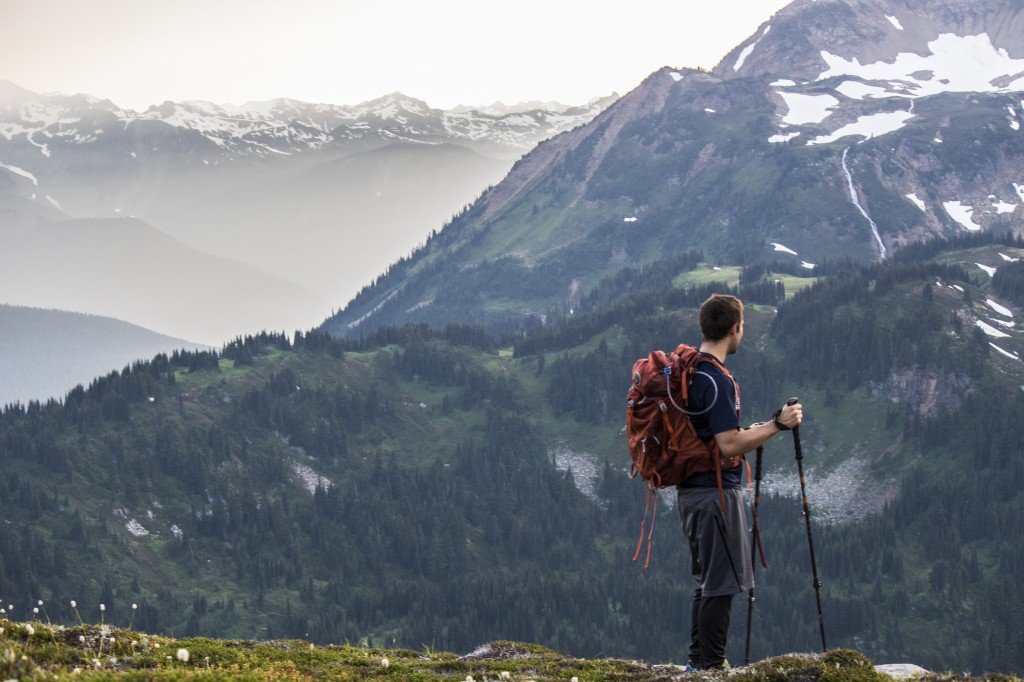 Hiking at Cloudy Pass in the North Cascades. Gear in this photo: Cascade Mountain Tech hiking poles, Osprey pack.
Hiking at Cloudy Pass in the North Cascades. Gear in this photo: Cascade Mountain Tech hiking poles, Osprey pack.
5. Osprey Atmos 50L pack ($200): (See photo above the previous entry) This was my first backpacking pack and I’ve been very happy with it. Like most Osprey packs, it has a premium price but the quality is excellent. It has a ventilated suspension, which helps keep you cool on long treks. The tradeoff of this is that you can’t carry weight over 50lb as comfortably, but it was well-suited for the lower-weight, 2-3 day trips I’ve been using it for. It easily holds a 3 L water bladder (but I usually only end up filling it to 2 L due to weight). It has straps for my hiking poles, straps for the tent, ample pocket space, and plenty of extra straps to clip items onto. It even has a loop to hold the nozzle of the water bladder. It does an excellent job of keeping anything stored in it waterproof.

6. JetBoil Flash Stove ($100): This stove has a push-button piezo-electric igniter, so you don’t need matches to light it (it’s always a good idea to bring some along, though, just in case). It uses special heat coils to channel the heat from the burner straight into the cup. The result of this is that it can boil 500 mL of water in under 2 minutes. Gel on the side of the cup changes color to indicate the heat of the water. The bottom cover doubles as a measuring cup and a bowl. The whole system is extremely compact; the bowl, burner, and gas canister all fit neatly inside the cup, at a weight of just over 400 grams.
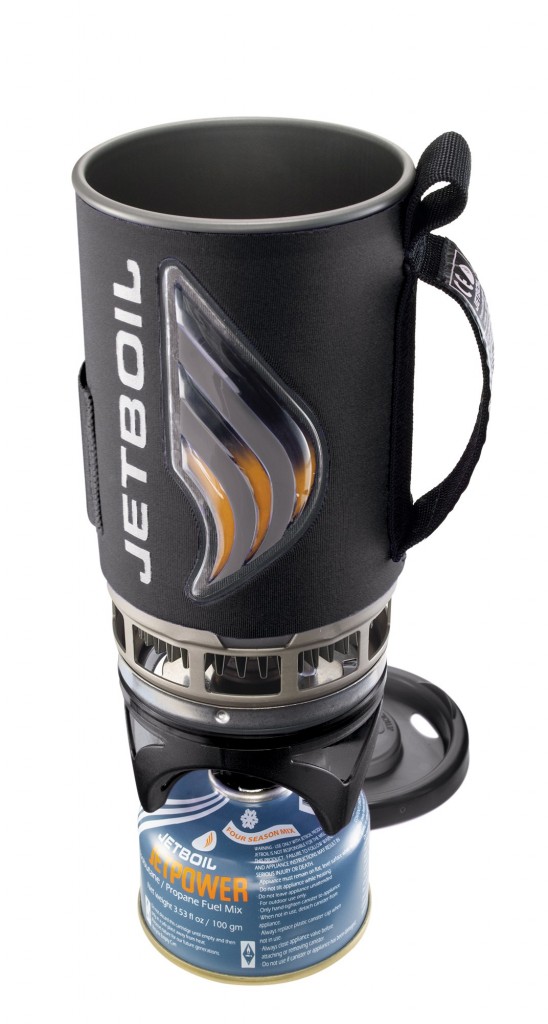
7. MSR Water Filter ($90): This is relatively compact and very lightweight. It filters water very quickly (up to 1 liter per minute), eliminating the particulate matter and sediment. The filter itself uses carbon tubes and can be cleaned in the field. Keep in mind that this filter does not eliminate viruses or bacteria. That risk is usually negligible when drinking from glacial water, but is something to keep in mind.
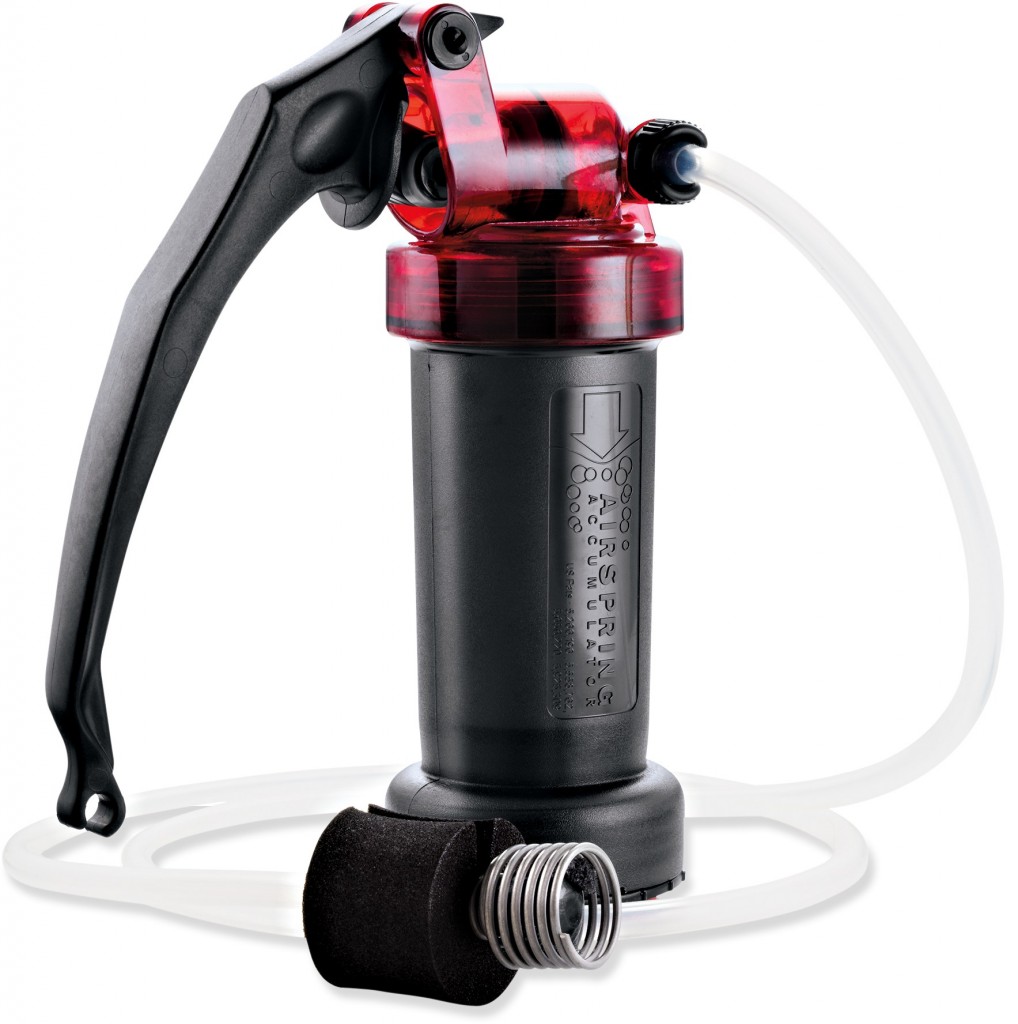
8. SteriPen ($100): This is on my wishlist. It’s uses a UV light to kill viruses and bacteria. Simply turn it on, insert it into your water bottle, and stir until there is a smiley face on the screen. This doesn’t get rid of particulate matter, so it’s best used in conjunction with a water filter like the one above. It’s powered by batteries, which give 50-100 sterilizations per charge. Some units use AA batteries, and there are portable USB chargers that you could use along with the solar charger if needed.
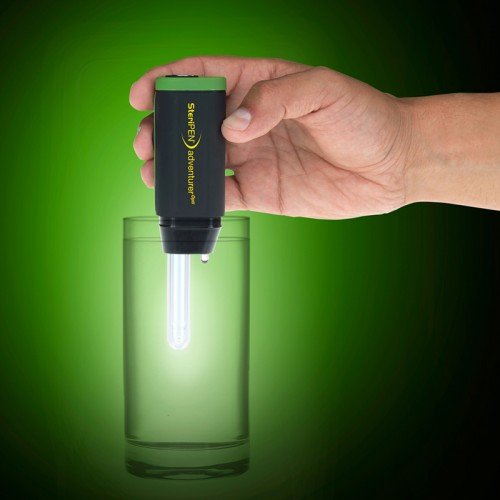
9. Lunar Solo Tent ($200): This tent is on my wishlist after backpacking with a friend who had one. It’s extremely lightweight (24 oz), and compact because it doesn’t use poles. Instead, simply use one of your hiking poles or a stick to prop up the middle. When set up, the sides can be slightly lifted to provide extra ventilation. The floor is watertight and it protects well against heavy rain. The peak height of 48 inches gives you plenty of headroom. And it’s extremely easy to set up.
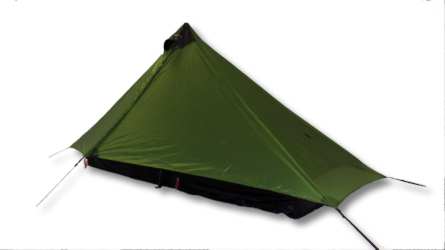
10. PeakFinder Mobile App (iPhone and Android, $4): This is an augmented reality app that identifies nearby peaks. Simply calibrate it to your location and hold it up to the mountain you’re trying to identify. It even works in areas where you don’t have cell coverage, because it loads the maps from the app itself, not the Internet. This does mean that it’s a sizeable download (about 100 MB), so make sure you get it over wifi if you’re on a bandwidth-limited data plan.

11. Mountain House dehydrated food packs ($8): These are surprisingly delicious and filling. They also happen to be very lightweight and compact. Simply boil 2-4 cups of water (depending on the size of the meal pack), pour it in the bag, stir, and wait 5-10 minutes.
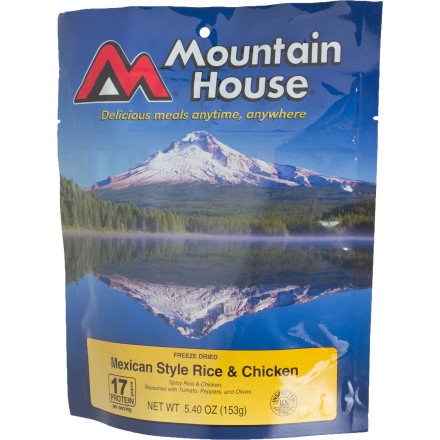
12. Backup USB battery ($25): This charges off of a USB connection, so you could use it in conjunction with the solar charger I reviewed earlier. It holds enough juice to charge an iPhone five times, and rapidly. It’s also about the size of an iPhone, and weighs only 9.1 ounces.

13. Victoriknox Soldier Swiss Army Knife ($50): This is the heavier-duty model of the Swiss Army Knife I used back in my Boy Scout days. Serrated knife, saw, Phillips screwdriver, bottle opener. Need I say more?

Comments